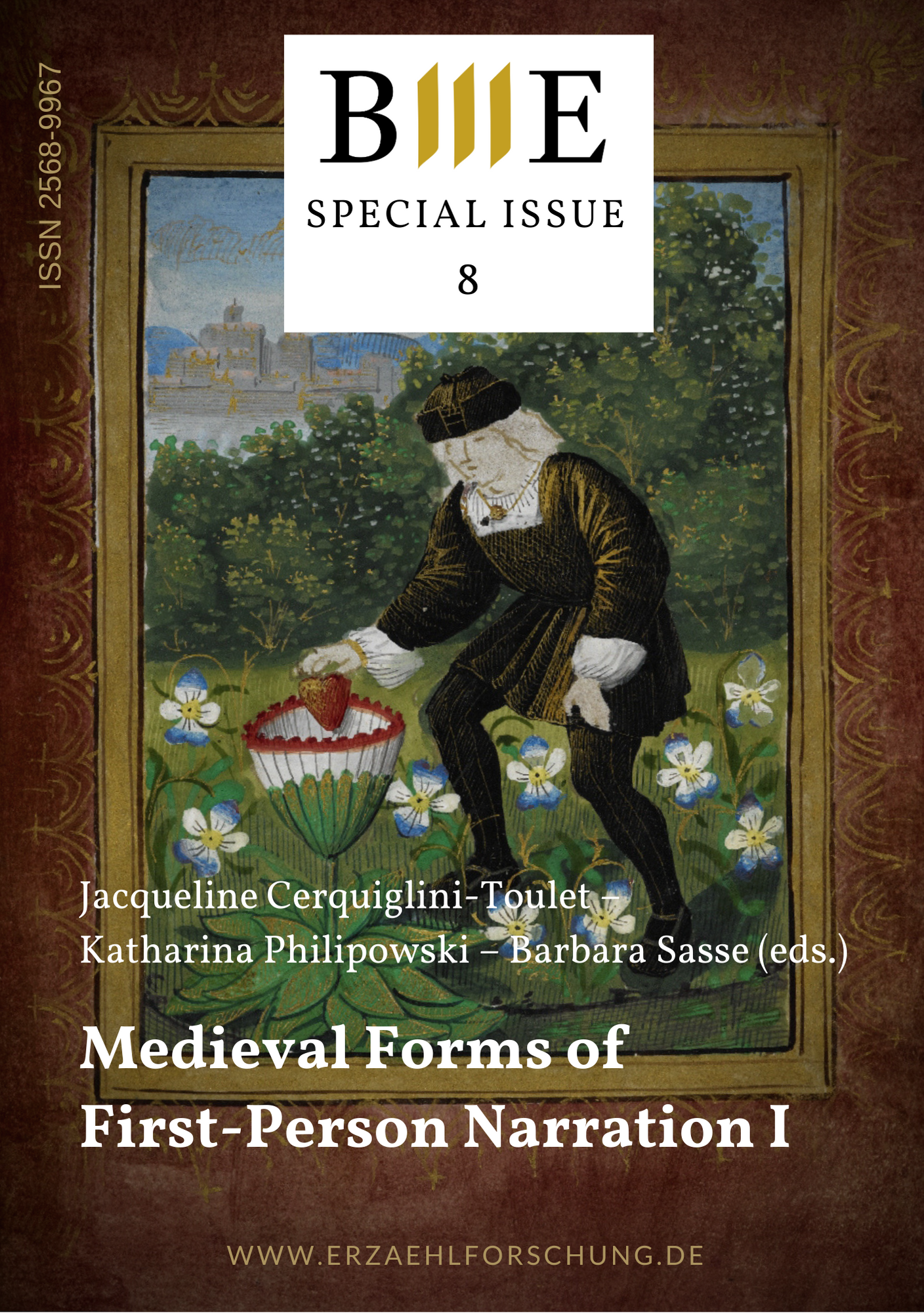«dans le haut-parleur de mon Alter Ego»: les je en trompe-l’œil du songe
DOI:
https://doi.org/10.25619/BmE20203148Abstract
Beyond the thematic and generic differences between ‹Le Songe de la Pucele› and ‹Le Songe de Pestilence›, the two allegorical dream narratives are built on a stratified and specular pluralization of the ‹I›, the undermining of the distinction between the first, second, and third persons, and the blurring of the figures representing the author. A split between the homodiegetic retrospective narrator (emerging from his dream and narrating it afterwards) and the intradiegetic dreamer (a character and the perceptual focus of the events in the dream), allows frequent jumps, shifts, and generalized ventriloquism: the ‹I›-narrator thus intermittently yields to the intra-oneiric ‹I› and to personifications through prosopopoeia, meaning personifications which give voice to nonpersons, whether these are transcendental ideas or representations of the character’s psyche, between whom paradoxical relationships of identity and difference are established. The dream thus offers the experience of another ghostly self, of an inner otherness which gives rise to new perceptions. The ‹I› tends to configure itself according to a changing, analogical or antagonist identity: between the feminine and the masculine in ‹Le Songe de la Pucele›, between an ‹I›-narrator and an anonymous third person, and between the author and the reader as clerical and specular figures in ‹Le Songe de Pestilence›. – The reference point of the ‹I› in the act of speaking, blurred and equivocal, serves a cognitive and hermeneutic purpose: it forces the reader to engage in a thought experience which includes varying gender perspectives and points of view on existential and political issues; the reader must constantly locate and identify the source and temporality of the voice in question. Thinking in the first person, through prosopopoeia, embedding, and metonymy, abolishes the boundaries between the self and other, inside and outside, single and multiple, speaker and speakerless, the singular and plural. The ‹I› thus becomes a formidable tool of fiction.
Downloads
Veröffentlicht
Ausgabe
Rubrik
Lizenz
Copyright (c) 2020 Fabienne Pomel

Dieses Werk steht unter der Lizenz Creative Commons Namensnennung - Nicht-kommerziell - Keine Bearbeitungen 4.0 International.





